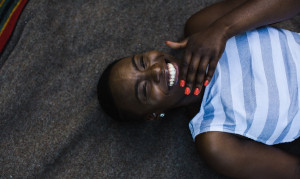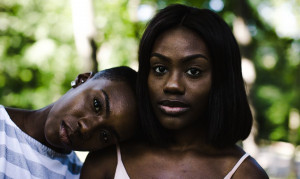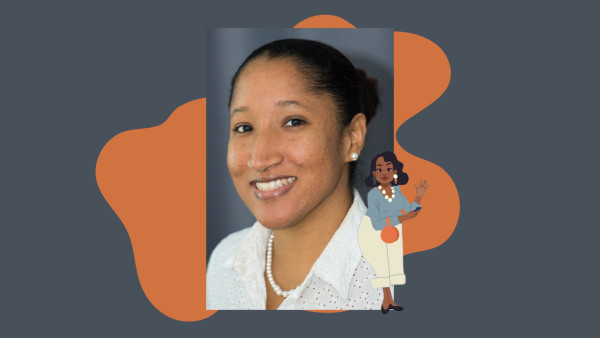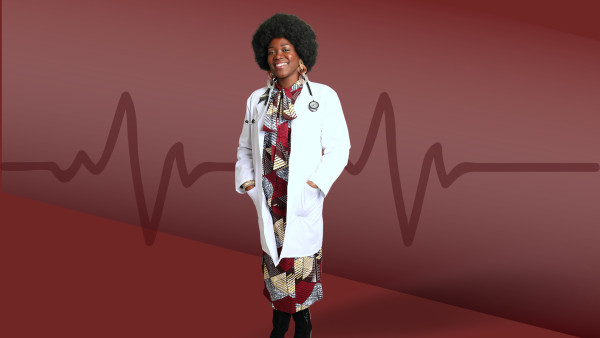The vaccination issue became more inflamed when tied to retaining employment. Many people felt they had no choice but to get the vaccine to survive. However, when it came to children’s vaccination, things haven’t been entirely black and white.
“I’ll be honest; as a mom, it’s one thing to decide on getting a vaccine for yourself. But we always think longer and harder for our children because they have a lot more life ahead of them, and we want to ensure we’re making the best decisions,” said Dr. Ewurabena Simpson, pediatric hematologist/oncologist at Children’s Hospital of Eastern Ontario (CHEO).
Her focus on studying blood and sickle cell disease has allowed her to connect with many Black families.
“In talking to my patients and their families, I admit there’s so much that’s unknown about COVID-19 itself, but we know about science and vaccines and their benefits. Even though this is a different way of providing immunity, mRNA vaccines are not something that has not been tested before. When we talk about mRNA vaccines, they are very effective. When we consider vaccines that are routinely given, it is not unusual to need booster vaccines to improve our immune response as we do for tetanus shots,” she said.
With COVID-19 virus variants ever developing, and schools being a hotspot for community spread, parents, teachers, and politicians are struggling to generate solutions that suit all.
Dr. Simpson shared, “What we’ve seen is that since we have had such a good uptake of the vaccines among adults and older children, there have been fewer severe infections among people who have been vaccinated. However, we also see that if you have been vaccinated, you can still contract the COVID-19 virus, and in most cases, get a milder form of the virus. Still, we’re not seeing the same rates of death among vaccinated individuals.”
According to the research in an article published in the Canadian Medical Association Journal (CMAJ), vaccine hesitancy in Black communities is not simply about misinformation or gaps in health literacy; it’s about distrust in an inherently and structurally racist medical system.
“Many people have had to take pause and think about the vaccine and whether or not they want to get it,” said Dr. Onye Nnorom, the article’s researcher, family physician, and President of the Black Physicians Association of Ontario (BPAO).
“The institutions that are telling us to get the vaccine are the government, healthcare and public health, and research institutions. Those are institutions that have not had a good track record of valuing Black lives,” Dr. Nnorom said in a health promotion video commissioned by the Black Health Alliance.
This distrust and other structural barriers, like access to transportation and time off from work to attend vaccination clinics, have played a significant role in the continued delay in vaccination for many marginalized communities and the children therein. Moreover, with the added complexity of unknown future implications of immunization for children, further doubts and concerns remain and continue to prolong vaccination in Black communities.
To engage with these concerns, Black physicians and community leaders have been leading the charge in facilitating spaces that attend to these fears, providing information, answers, and the culturally safe care that is lacking in traditional westernized health institutions.
In the CMAJ article, Dr. Nnorom and her team of Black community researchers found that Afrocentric health promotion and counselling approaches centred on respecting patients’ values and perspectives have effectively improved uptake of both influenza and COVID-19 vaccination in Black populations in Canada.
BPAO vaccination clinics like those held at the Jamaican Canadian Association in the spring on Mother’s Day weekend, or the ongoing weekly clinics at Taibu Community Health Centre, use an approach rooted in cultural humility and competence that has led to an increased sense of comfort. As a result, there has been an uptick in health promotion actions like cancer screening, blood pressure check-ups, and vaccination rates in Black communities.
Following the success of coordinated community-led responses to the first round of vaccinations last year, BPAO doctors and community partners have been pleased and proud of the outcomes and feedback they’ve received from their efforts. Organizations have chosen to continue to engage families at the grassroots level to build trust and healthcare confidence in Black communities.
With the legacy of anti-Black racism in the medical institutions, skepticism is a reasonable response to another wave of mass vaccination efforts, especially when children are the target. And that’s why leaders and community ambassadors within marginalized communities have chosen to create low-pressure, safe, familial, and familiar spaces for people they serve.
Fostering safe spaces can look like filling rooms with doctors who reflect the community and bring lived experiences to the people they’re serving—like the concern, hesitation, or fear that many Black people manage when dealing with doctors or the medical system more broadly.
In the case of the latest round of youth vaccination, safety looks like creating a space where wellness services are offered, and vaccinations are made available but never forced.
On November 27th for instance, shortly after youth vaccination began in the province, Black Creek Community Health Centre hosted an event called Clippers & Combs in collaboration with Our Sisters Keeper TO.
The recurring event brings braiders and barbers to the centre to provide free haircuts and braided hairstyles to children and youth in the area. Children’s vaccination opportunities were also made available.
“We’re talking to people about their health. And if you decide vaccination isn’t for you we respect that,” said Cheryl Prescod, Executive Director of Black Creek Community Health Centre.
“We try to help families protect themselves in other ways. For example, we help them with information on things like being vigilant with PPE or other best practices to avoid contracting the virus. In addition, we use a holistic approach, checking blood pressure and other chronic conditions that increase their chances of being infected with COVID-19 or worse,” she said.
The event and others like it provide wrap-around health promotion care that shows families that their health matters, not just their vaccination status. As the vaccination efforts continue to roll out across Black communities, and variants continue to develop, leadership both within medicine and throughout the community encourages families to consider how the benefits of vaccination contrast with the risks.
“It is clear that the benefits of vaccination outweigh the risks,” said Dr. Upton Allen, Head of the Division of Infectious Diseases at The Hospital for SickKids, in a November workshop.
At the individual level, he shared that “between November and February, is a respiratory viral season, so COVID-19 is hitching a ride on this season, and we can expect to see increases that could affect acute COVID-19, a multisystem inflammatory system in children, and the potential for long covid.”
At the community level, he spoke about how opportunities for transmission at schools, homes, and the general public, increase when fewer children are vaccinated.
As the virus continues to move and evolve, medical professionals of all shades are firm in holding up vaccination as the surest method to finishing the ongoing saga of this global pandemic.
“I think the most influential factor is that we don’t know what COVID-19 will look like in the future. We know that some individuals will have long COVID, we know that some individuals will have complications like blood clots or even neurological complications. For someone who is five to six years old that will look different 20 years from now vs. someone who is 40 years old,” she said.
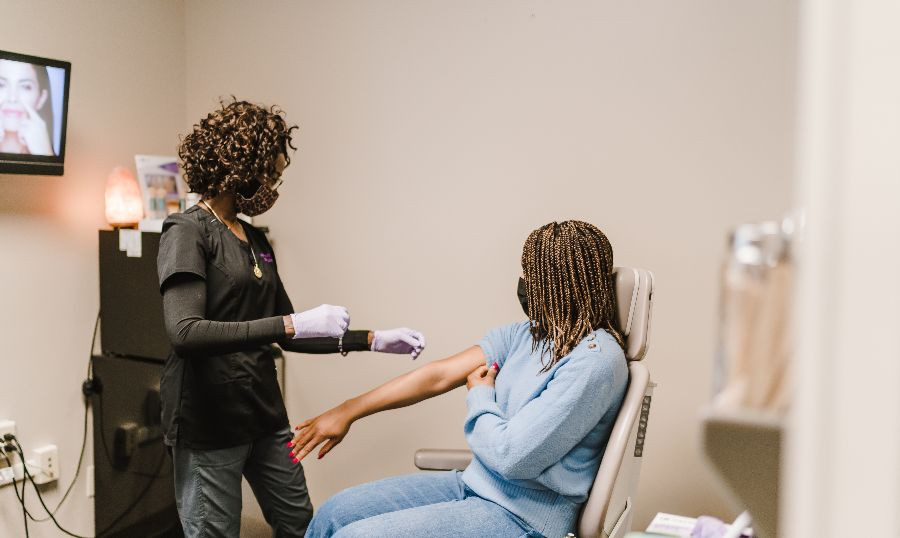
 By
By 

